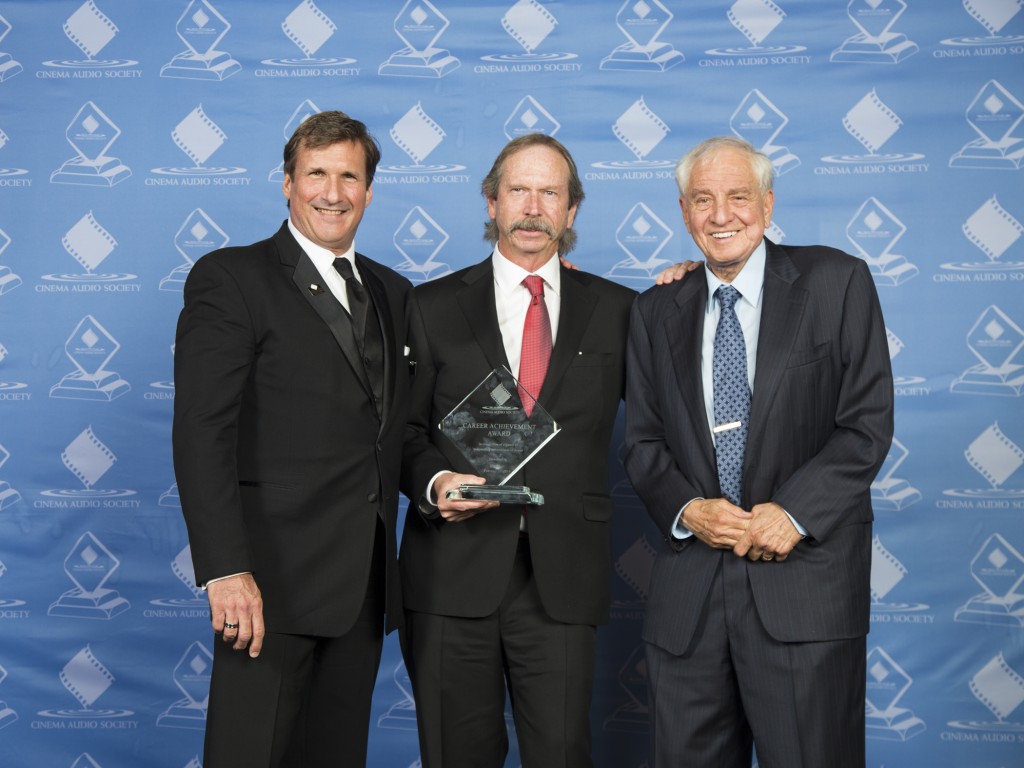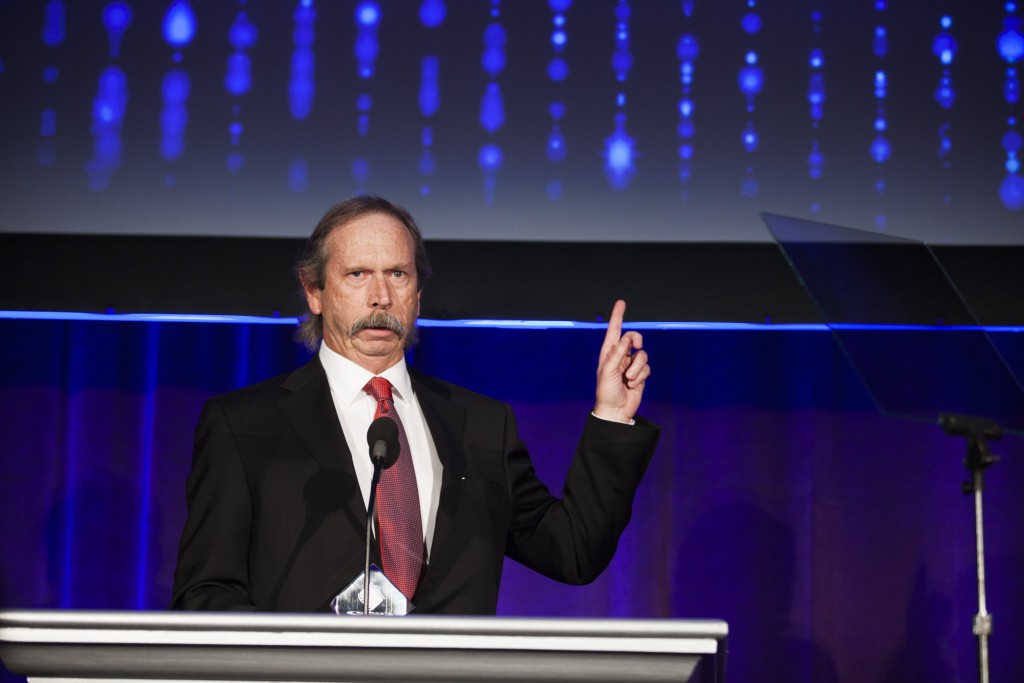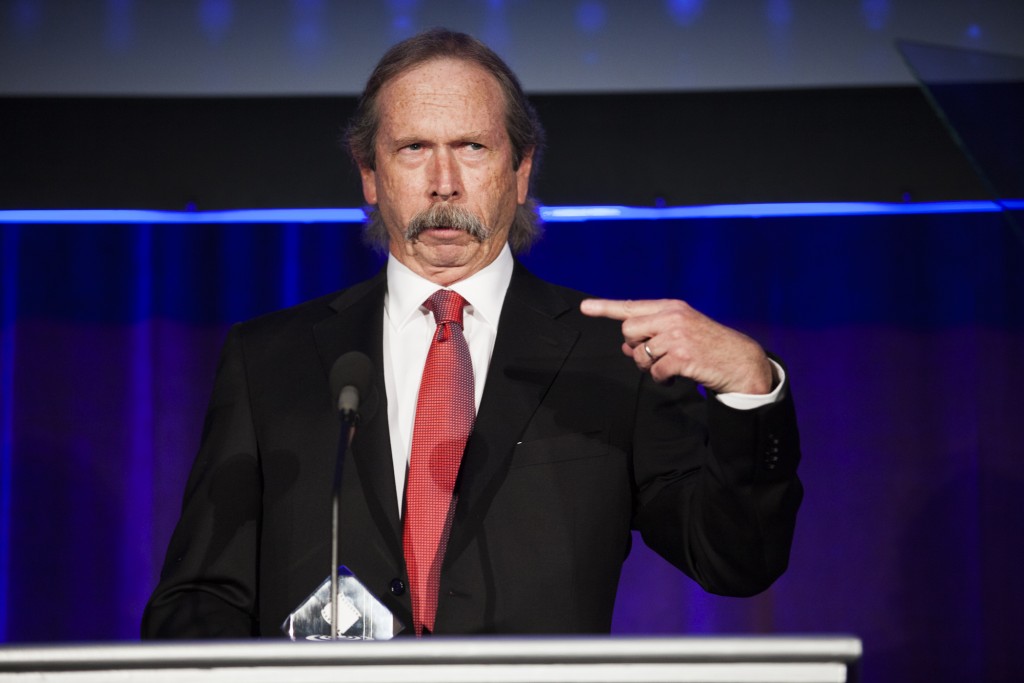In between a search for Nemo, adventures with Goofy and Tea Time with Alice, many beloved characters of Disney and beyond have stopped by Stage B to visit Doc Kane.
“Where else could you work with Woody and Buzz in the morning and Black Widow in the afternoon?” Doc says.
Filmmakers come to Doc when they run into a production dialogue intelligibility issue or when they want to enhance the story by adding dialogue, group sound or other spoken words. The director might love a given performance, “but there’s a leaf or a crunch or a door shuts during a line that messes up the dialogue,” Doc says.
Doc provides these filmmakers with a chance to go back in time, or at least the closest thing to time traveling with his re-recording skills. He does that painstakingly by trying to re-create the original sound conditions. Through room set up and microphone choices, Doc optimizes the background and the ambience in the room of the newly recorded dialogue to blend seamlessly with the original production recordings.
A 28-year Disney veteran who is widely recognized throughout the industry as the premier Automated Dialogue Mixer, Doc is being presented with the 2016 Cinema Audio Society (CAS)’ Career Achievement Award.
“It’s all the people that we’ve worked with for the last gazillion years, they’re the ones that voted and there’s a lot more people out there more deserving than I, that’s for sure, “ Doc says in his almost trademark, humble way. “But they picked me and it’s great. It’s actually a lot of fun.”
Doc originally started his journey into sound mixing back in high school with his band, Colossus. Doc played the drums for the band. Although Colossus never did get to tour the country, they made sure everyone still knew they meant business, as they had their very own business cards.
“We overdubbed everything. Guitars, vocals, everything,” Doc says.
Doc learned how to take the four members and turn them into eight. And how to turn the eight into sixteen.
He built his first Studio in the proverbial garage – literally: “We would go to the chicken ranch and buy the egg crates that they used to put their eggs in to ship to the markets,” Doc says. “We knew even back then that the egg crates could help the acoustics, so we glued them to the wall of my friend Carl’s dad’s garage. They had a three-car garage and his dad let us use the third one. We put all these curtains up to deaden the sound and we just had a ball.”
As a senior in high school, Doc joined other students Friday afternoons at Paramount Pictures to watch the scoring mixers.
One fateful day on the Paramount lot, the stage was scoring Lady Sings the Blues. A youthful Doc watched the mixers in the control room while the musicians played.
Watch Doc Kane receive his CAS Career Achievement Award here.
Doc heard the music, looked at the mixers, looked backed at himself. Probably four, or eight or sixteen times over. The music, mixers, himself. Music mixers, himself.
Until finally: “I went boop, just found it, I found what I wanted to do,” Doc Says.
And yes, Doc really did say boop, in his explanation of this. Boop and so many other words that are in the dictionary of Doc. Talking to Doc can be its own animated soundtrack as he can frequently slip into character voices, sound effects or other noises made with a mouth that perhaps some thought not possible. All this wrapped in a personality so nice and accessible that it is no wonder that so many A-List Directors and Actors insist on working with him.
Doc was lucky to have had skilled guides that would help him realize his dreams. He trained under legends of the sound mixing world including Paul Hager, Richard Einfeld and Frank Warner.
“Richard Einfeld would say, ‘If you bounce this loop, I will kill you because we don’t have time to re-transfer anything,’” says Doc. Back in the days of film, re-transfer was an ordeal.
Doc spent years perfecting his skills. He spent time at Todd-AO and Time Warner. It was his old friend from Todd-AO, Jacobus Rose, who would eventually lead him to Disney 28 years ago.
The two met on the Disney lot one Friday night to catch up. During their reunion, Jacobus, who was running the Disney Sound Department at the time, needed to attend to a client.
“The client wanted to talk to Jacobus privately,” Doc explains. “A half hour later Jacobus asked, ‘Say Doc, what are you doing on Monday?’”
That Monday, Doc stepped in and mixed for the client. And, of course, that one Monday led to many more.
“I have so much fun working on every show. They’re all fantastic…The animated films from Disney Feature Animation and Pixar, as well as these great live action films from Disney, Marvel and now Lucasfilm. And all our outside of Disney work. We’re very, very lucky to work with these great clients,” Doc says.
Doc’s anticipatory skills are also what elevate him on the stage, especially when characters express themselves with emotions that vary in vocal frequencies.
Doc had the chance to work with the great Robin Williams when he was doing the voice-acting for the beloved Genie in Aladdin. For those who thought catching a genie in a lamp was difficult, try catching the voice behind one.
“Robin, in that great way of his, had amazing creative and vocal range, He’d go from a whisper to a scream in a nanosecond,” Doc says.
Dealing with that range of vocals can be tough, but Doc explains, “if you work the mixer like a piano,” or going back to his roots, “like a set of drums, you can catch even the most elusive of voices.”
Doc brought these skills, too, when working with Billy Crystal and John Goodman on Monsters, Inc.
“You’ve heard how loud those movies get. If Billy Crystal goes ‘Bleh, bleh BLAH WAH…’” -Doc explains pulling from his Doc charming dictionary to fully express this- “They don’t want to hear any distortion. If they hear any distortion, you lose the creative moment.”
And being a re-recording mixer isn’t just about being skilled with the technical components, either.
“Doc is very good at reading people,” says Dawn Biro, Manager, Client Services and Scheduler for Stage B. “He can tell when a director or a producer or an actor is off their game and gently helps them back on.”
Sometimes talent just need a break to interrupt the flow in order to go in a different direction.
“Doc will come out and say, ‘Oh let’s move this microphone just a little bit,’ just to give the actor a chance to step away from the microphone for a minute or two to regroup and think about something that the director has said,” explains Dawn.
Doc knows the director relies heavily on him. This re-recording session is a second chance to make things right.
“Through the years I’ve worked with every type of personality. When it’s a tense day on the stage or the actor is having a bad day, after a while they may stop and say, ‘Wait a second that sounds pretty good. I think we made it better.’ When they say that, that’s when you know you’ve done your job,” explains Doc.
So from Genie, Mike Wazowski, Sully, Mickey Mouse, Captain Jack, Carl Fredricksen, Merida, Nick Wilde, Julie Andrews, Dick Van Dyke, Ant-Man, Woody, Buzz, Nemo, Dory, Anna, Elsa, Lightning McQueen, Maleficent, Sadness, Stitch and the thousands of other people and characters Doc has helped to create, audiences and colleague alike are quite thankful for Doc and his wonderful work.
His Disney Digital Studio Services’ family is so very proud of him and congratulates Doc Kane on receiving the CAS Career Achievement Award, even through we know that he still has quite a career ahead.



